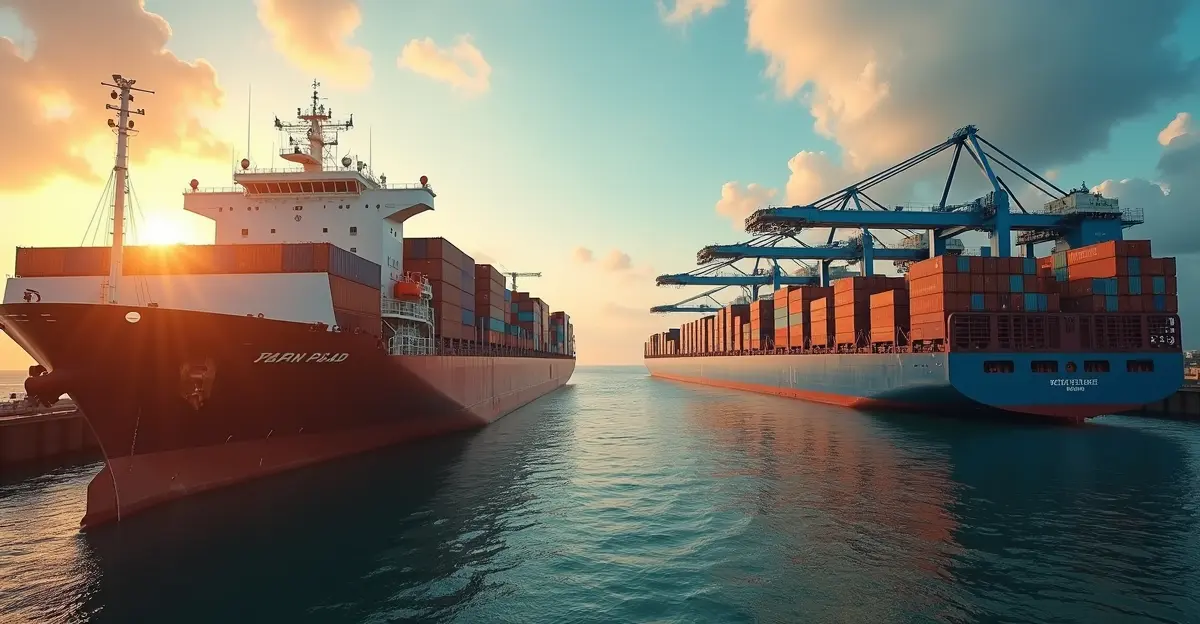IMF Upgrades Global Growth Forecast Despite Trade Tensions
The International Monetary Fund has modestly upgraded its global growth outlook for 2025, raising projections to 3.2% from the previous 3.1% forecast. This marks the second consecutive upward revision this year, reflecting what IMF officials describe as a 'more benign tariff environment than initially feared' according to IMF Chief Economist Pierre-Olivier Gourinchas.
Trade War Impact Limited by Private Sector Adaptability
The global economy has shown remarkable resilience in the face of escalating trade tensions, particularly between the United States and China. 'The private sector demonstrated significant flexibility by front-loading imports and quickly rerouting supply chains,' Gourinchas explained in the IMF's latest World Economic Outlook report. This adaptability has helped cushion the immediate economic impact of President Trump's tariff policies, which saw initial rates as high as 24% reduced to approximately 17% through various trade agreements.
The European Union's agreement with the US has been particularly significant in reducing trade barriers, though details of these arrangements remain somewhat unclear. The IMF's improved outlook also reflects better financial conditions and a weaker US dollar, which has depreciated by approximately 8% since January 2025.
Persistent Uncertainty Clouds Economic Horizon
Despite the modest improvement in growth projections, the IMF emphasizes that uncertainty remains a critical concern for global economic stability. 'Countries, institutions and markets have adapted to a landscape characterized by increasing protectionism and fragmentation,' the IMF report states, warning that this adaptation comes with 'somber growth prospects and eventual calls for changes in macroeconomic policies.'
The potential long-term consequences of current trade policies remain difficult to assess. Gourinchas cautioned that 'the effects of these tensions could increase when companies pass on tariffs to customers and trade routes are permanently established through other countries. Then the global economy gradually becomes less efficient.'
Migration Policy Adds Another Layer of Complexity
The IMF also highlighted the economic implications of stricter immigration policies, particularly in the United States. Reduced labor migration could eventually strain production chains, though current declining labor demand has temporarily masked this concern. The organization's analysis suggests that while immediate impacts have been manageable, the cumulative effect of trade restrictions and migration limitations could gradually erode global economic efficiency.
The IMF's latest assessment comes amid renewed trade tensions, with President Trump recently announcing plans to impose additional 100% tariffs on Chinese goods, bringing total rates to 130%. This escalation threatens to reverse recent progress and underscores the fragile nature of current trade arrangements.
As the global economy navigates these complex challenges, the IMF continues to emphasize the importance of restoring trade policy stability and improving international cooperation to maintain economic momentum in an increasingly uncertain global landscape.

 Nederlands
Nederlands
 English
English
 Deutsch
Deutsch
 Français
Français
 Español
Español
 Português
Português










